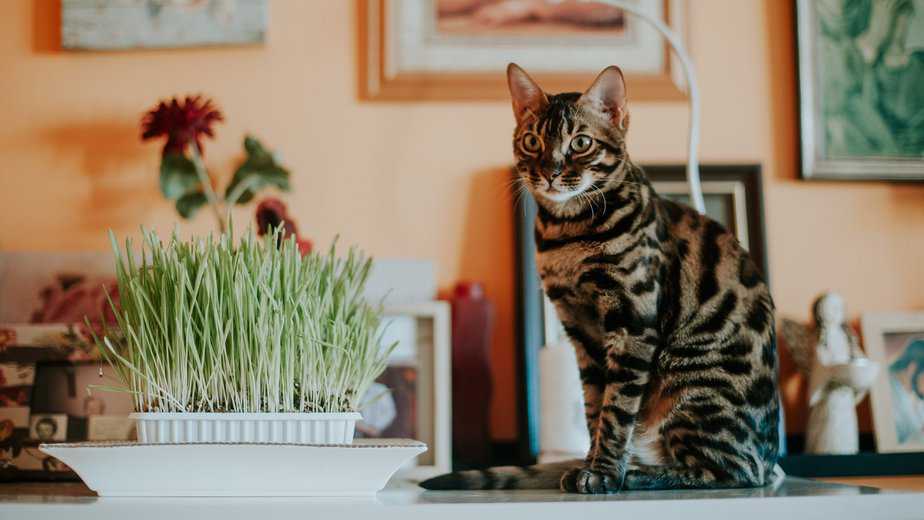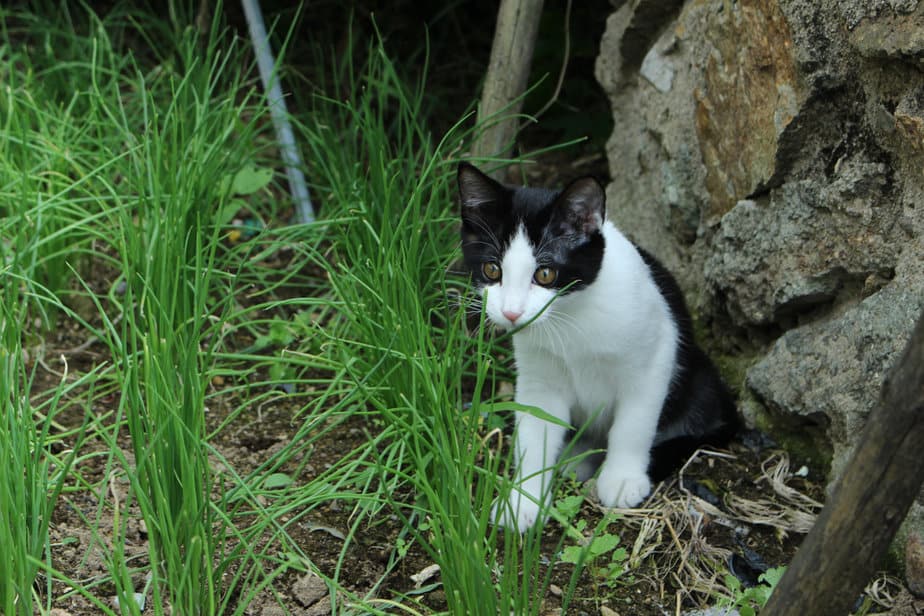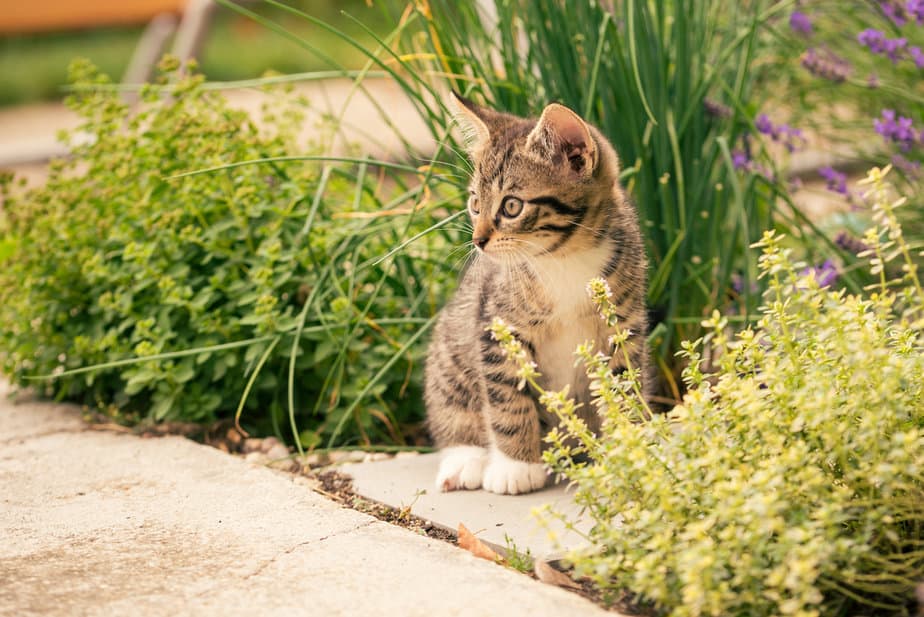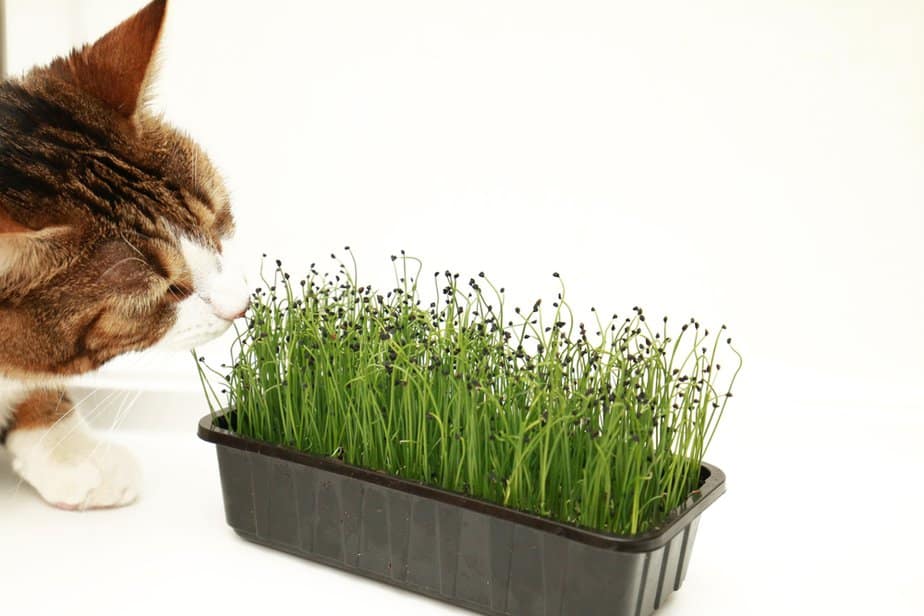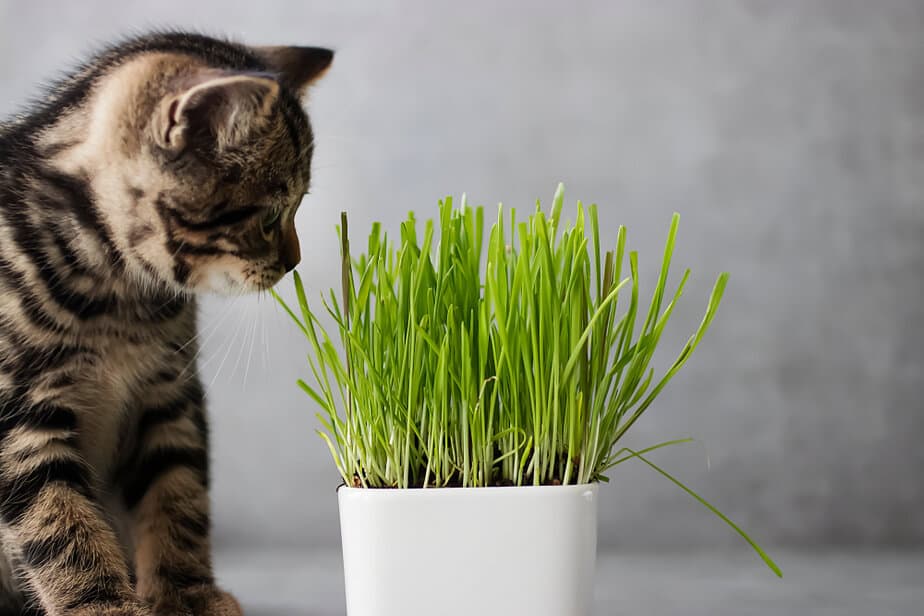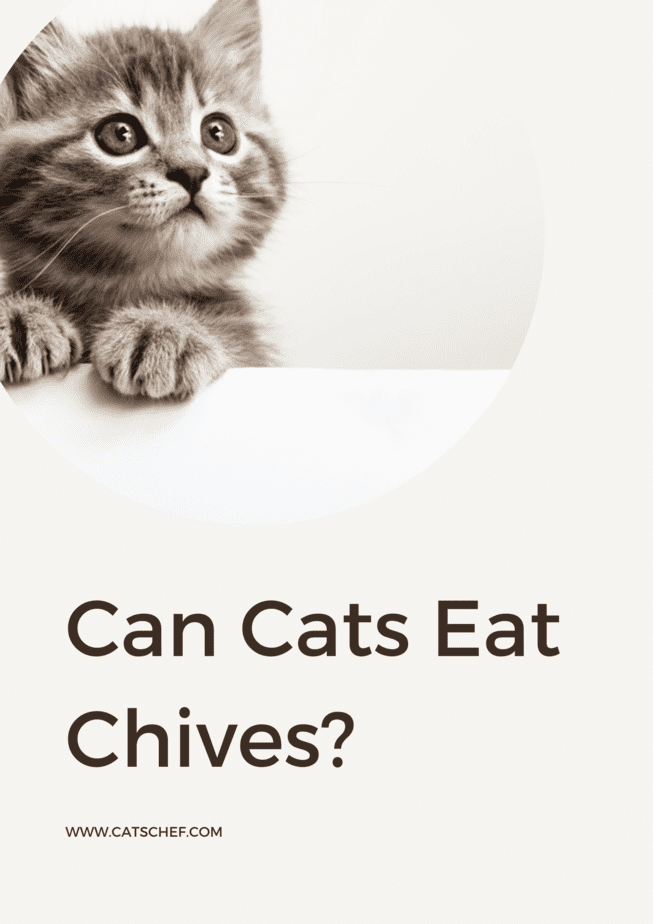📖 Table of Content:
“Argh, can cats eat chives!?” You never thought you’d be asking that question, but your curious creature’s been driving you crazy and chiming in every time you’re eating chives. She’s been meowing your ears off hoping you would consider giving her a taste.
But, you know better than to let her munch on everything she can get her paws on. “Stop giving me that look Ms. McFluffer! You JUST scoffed down an entire bowl of kibble!” And, you can’t let her nibble on chives when you’re not sure whether they can send her to the emergency animal center.
You’re pretty sure you’ve read somewhere that onions and garlic are the worst things your curious creature can chew on, but what’s the deal with chives? They’re pretty similar when we’re talking about the scent and the taste, but are they the same thing? Can cats chew on a chive or two?
You’re not that far off, to be honest! Onion, garlic, AND chives belong to the same family (which makes TOTAL sense, right?) According to our friends over at the ASPCA (American Society for the Prevention of Cruelty to Animals), cats can’t eat chives or any of the Alliums.
But, you have nothing to worry about because we’re here to help you figure out how and why to scrap your cat’s pleading meows for a bite.
What are chives?
Starting from the beginning, chives are those tall, long strands of grass that aren’t grass at all. They’re actually herbs that are related to onions, green onions, garlic, shallots, and leeks. They belong to the Allium family – a plant family that has a recognizable, pungent flavor.
Chives are SUPER POPULAR among humans. They’re pretty handy because they add that “je ne sais quoi” to soups, dressing, and dips. They’re particularly aesthetically pleasing when added to egg and potato dishes (can you even imagine Eggs Benedict without the sprinkle of chives on top!?)
And, they’re pretty great on their own. Chives are packed with vitamins, minerals, and antioxidants. We’re talking about vitamin C, vitamin A, riboflavin, potassium, thiamine, and beta carotene.
These vital nutrients can help boost your immune system, maintain the health of your digestive system, and ensure the proper function of your nervous system. And don’t even get me started on those antioxidants which prevent the onset of cancer, fight inflammation, and improve heart health.
Chives aren’t JUST a garnish worthy of an Instagram post, they’re pretty much a superfood – a nutritional and health bomb that can improve the quality of your life. But, before you and your mischievous munchkin start celebrating, chives don’t really have the same effect on cats.
Can cats eat chives?
That’s right, cats CAN’T eat chives! Our friends over at the ASPCA don’t recommend feeding chives to your curious creature for a good reason. Chives, along with the rest of the Allium family, happen to be extremely toxic to both cats and dogs (kittens and puppies, too). Wait, what!?
We’ve got some explaining to do. Put your science hat on and buckle up because you’re in for a ride! Every member of the Allium family (Allium cepa – onions and green onions, Allium porrum – leeks, Allium sativum – garlic, and Allium schoenoprasum – chives) contains sulfoxides.
What are those? Sulfoxides are compounds that are pretty harmless to your boisterous beast – until she chews on them and turns them into organic sulfur compounds. And boy, we can’t even begin to explain how dangerous these organic sulfur compounds can be for your precious pet.
One of two things can happen when your cat munches on something containing these compounds. She can either experience an uncomfortable yet mild digestive upset, or develop a pretty severe case of poisoning that can lead to anemia. So, how can you know what to expect?
What happens when your cat eats chives?
Cats can’t eat chives, but they also don’t really know that they can’t eat chives. Your mischievous monster might catch a glance of herbs chilling on your kitchen counter and decide to give them a sniff and a bite while you’re busy watching Bridgerton (and pining over the Viscount, of course!)
What happens then!? Unfortunately, you might not notice the symptoms right away because they tend to develop over time. First, she might get a pretty nasty case of diarrhea and vomiting that you might put down to “oh no, you’ve eaten too much again,” and decide against contacting the vet.
Then, a couple of days later, she might lose her appetite and start feeling lethargic and sluggish. That’s the moment you might want to check her gums, and when you notice that they’re pale, contact your vet and ask for an emergency checkup. That’s pretty much the BIGGEST sign you’re dealing with Allium poisoning.
But, there’s another catch! Remember those organic sulfur compounds we mentioned a couple of paragraphs ago? Organic sulfur compounds, when consumed over a longer period of time or excessively at once, damage your cat’s red blood cells.
When left untreated, that damage can lead to anemia – hemolytic anemia, Heinz body anemia, and/or methemoglobinemia to be more precise. Unfortunately, these conditions can be fatal and should be prevented at all costs.
What to do if your cat eats chives?
Your curious creature has a mind of her own and you’ve come to the conclusion she’s probably eaten a bunch of chives before you were able to stop her. So, now you’re left wondering “What do I do now? How do I help her deal with these herbs without causing lasting damage?”
First things first, contact your vet. Even when you’re not 100% sure what’s going on, you have a reason to suspect she might have eaten something she shouldn’t have. Your vet should be able to save you from hours and hours of worry and asking yourself “What’s wrong with her?”
Other than that, you can contact the Pet Poison Hotline or pay a visit to the nearest emergency animal center. Regardless of which route you decide to take, they should be able to walk you through what’s going on and/or offer your cat supportive care and treatment.
Don’t worry, she’s going to feel better the moment that she gets the chives out of her system. The vet (or whoever’s helping her) might induce vomiting or use activated charcoal to prevent her body from absorbing the chives into her digestive system.
Remember, don’t do anything that’s not advised or approved by your vet! Your precious purrincess might need to stay overnight and receive GI medications and IV fluids, but she should be purrfectly fine the moment those chives are out of her system.
How to stop your cat from eating chives?
While that might seem like a misson-impossible type of predicament, there are a couple of things you could do to stop your cat from eating chives. Don’t get me wrong, she might get upset with you and go on an affection strike. But, that’s better than having her suffer from Allium poisoning, right?
Here’s what you do. Remove the chives from your curious creature’s reach. You can hide them somewhere she can’t reach, lock them away or even prevent her from going into the spot in the garden where you’re growing your chives.
Then, give her something else she can munch on. You can always keep a couple of cat treats (or other minuscule morsels) under your sleeve for when she starts meowing your ears off. You can also keep her happy with a couple of toys, which happens to be our next point.
Always keep a couple of toys within your reach. When you notice she’s getting bored and starting to roam around the house looking for trouble, play with her or give her a toy she can chew on without your help (bonus points for a toy that resembles a veggie or an herb!)
Can cats eat other herbs?
Cats CAN eat some other herbs. Goes without saying, but there are some herbs that can cause harm to your cat, which means you should consult with your vet before adding any of them to your cat’s diet. But you can always look for catnip, valerian, thyme, witch hazel, dandelion, basil, cilantro, and rosemary.
These are only some of the most popular ones, but there are even more herbs your precious pet can munch on rather than chives. And remember – never add oregano, mint, tarragon, lemongrass, chamomile, cannabis, or bay leaf to your cat’s diet.
What’s the conclusion? Can cats eat chives?
Cats can ABSOLUTELY NOT eat chives! Chives and other members of the Allium family contain organic sulfur compounds that can cause harm to your cat’s health. Chives can cause digestive problems, chives poisoning, and anemia when left untreated.
Trust me, your precious purrincess should steer clear of chives and other Alliums under every single circumstance out there. There are better things she can munch on, and there are better ways to entertain her curiosity.
